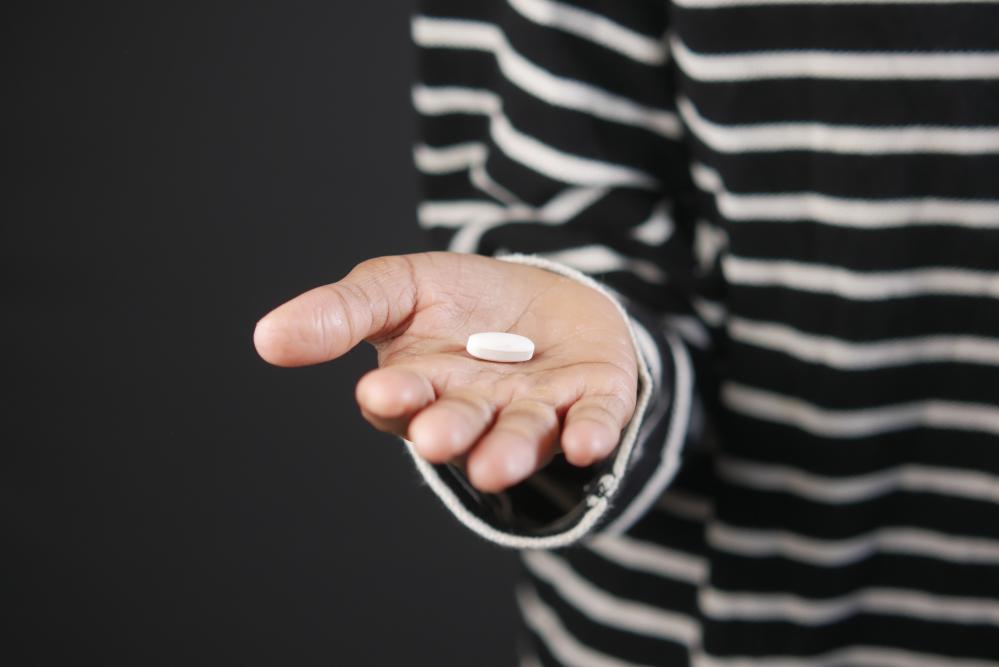Give us a call1 (888) 850-5161
Table of Contents

Understanding Inpatient Drug Abuse Treatment
Defining Inpatient Drug Abuse Treatment
At Drug Abuse and Addiction Recovery Center, we understand that the journey to recovery is deeply personal and varies from one individual to another. Inpatient Drug Abuse Treatment is the cornerstone of our approach to addiction recovery, offering individuals a structured and supportive environment removed from the pressures and triggers of everyday life. This form of treatment involves staying at a residential facility where comprehensive care is provided 24/7.
Our dedicated team of professionals works closely with each client, crafting individualized treatment plans that encompass a full spectrum of therapeutic interventions. These may include medical detoxification, individual counseling, group therapy sessions, and holistic activities designed to support healing of the mind, body, and spirit.
Phases of Inpatient Care
Embarking on Inpatient Drug Abuse Treatment begins with an intake assessment, where we delve into an individual’s history of substance use, co-occurring disorders, and overall health. From here, a multi-faceted treatment plan is developed, tailored to address each client’s unique needs.
Detoxification is often the first step, where individuals receive medical attention to safely remove substances from their body. Subsequent phases involve therapeutic interventions like cognitive-behavioral therapy and experiential workshops which foster the skills needed for sustained recovery.
Our center prioritizes holistic care; therefore, activities such as mindfulness sessions and nutritional counseling are integral to our program. This ensures that our clients are not only sober but also equipped with healthier lifestyles and coping strategies post-treatment.
The final phase centers on continued care planning, where we prepare individuals for life outside the facility, guiding them towards resources and supportive networks that will bolster their long-term sobriety.
Benefits of Inpatient Treatment
An immersive Inpatient Drug Abuse Treatment program provides a multitude of benefits, most notably the opportunity for intense focus on healing without external distractions. Our residential setting fosters a sense of community among clients, which is foundational to the recovery process. Here, individuals learn from each other’s experiences, build lasting friendships, and support one another through their shared journey to wellness.
Accessibility to professional support at any given hour is another hallmark of our program. Whether clients are dealing with physical withdrawal symptoms or emotional upheavals, our staff is always available to assist, comfort, and guide them towards positive coping mechanisms.
Personalized Recovery Journeys
At our center, we believe that successful recovery from substance abuse requires a personalized approach. Inpatient Drug Abuse Treatment is not a one-size-fits-all solution; it needs to be as unique as the individuals we serve. Personal insights and professional experiences are what shape the recovery journey, ensuring that each plan aligns with the client’s personal goals and challenges.
Anecdotal evidence from our alumni underscores the impact of our individualized treatment. Many share stories of breakthroughs occurring during quiet moments of reflection in our serene surroundings or during intense therapy sessions that addressed deeply rooted issues.
Our mission is to empower each client, providing them with the tools for lasting change. This might mean integrating innovative therapies or adapting traditional methods to better suit individual needs. By remaining flexible and responsive to our clients’ evolving needs, we maintain the efficacy and compassion that stand as pillars of our philosophy.
- Individualized care plans
- Emphasis on holistic therapies
- Community-based support
Embracing the Journey
Overcoming addiction is not just about abstaining from substances; it’s about rediscovering oneself and finding joy in sobriety. Our Inpatient Drug Abuse Treatment is designed to support this transformative journey, encouraging clients to engage deeply with the process of healing and self-discovery.
We are here to guide and support you every step of the way, offering a compassionate and nurturing environment that cultivates growth and resilience. Remember, the path to recovery is a marathon, not a sprint, and every small victory is a giant leap towards a brighter, substance-free future.

Understanding Treatment Options
Personalized Care at Recovery Centers
In the fight against substance abuse, a Treatment Center for Drug Abuse is often the beacon of hope for many individuals battling addiction. At our Drug Abuse and Addiction Recovery Center, we believe in a personalized approach that caters to the individual needs of our clients. Every person’s journey to recovery is unique, and so should their treatment plan be.
Our specialized therapy sessions, from one-on-one counseling to group support, are designed to address the intricate web of challenges faced by those on the path to sobriety. We understand that the road to recovery is not just about treating the addiction but also about healing the person as a whole.
Integrating a range of services including cognitive-behavioral therapy and medication-assisted treatment, we focus on the holistic recovery of our clients. This approach ensures that we not only treat the symptoms but also address the root causes of addiction, thereby reducing the risk of relapse and aiding in long-term recovery.
The Spectrum of Care
A key strength of a Treatment Center for Drug Abuse lies in the spectrum of care offered. At our center, we provide a continuum of services that begin with a thorough assessment and can extend to aftercare and alumni programs. Our aim is to support our clients at every necessary touchpoint along their journey to recovery.
For some, the journey may begin with medically-assisted detoxification, a critical and sensitive phase designed to safely manage withdrawal symptoms under medical supervision. Upon stabilization, clients may transition to intensive inpatient care or step down to an outpatient program, depending on the severity of their addiction and individual circumstances.
The provision of outpatient services allows individuals to receive treatment while maintaining certain aspects of their daily lives. This flexibility is vital for those who must balance their recovery with commitments such as work or family care.
Our post-treatment care includes not just follow-up sessions but also community-building activities and support networks. These endeavors aim to equip our clients with the confidence and support network they need to stand firm in their sobriety.
Beyond Traditional Therapy
At our Treatment Center for Drug Abuse, we believe in challenging the status quo by incorporating progressive therapies and amenities to enhance the recovery process. Activities like art therapy, equine-assisted therapy, or yoga can play a crucial role in facilitating self-discovery and emotional processing.
Anecdotal evidence suggests that complementing traditional therapies with such practices can lead to powerful breakthroughs in treatment. Engaging in these unconventional therapies can offer a nonverbal medium for expression and insight, vital for those who may struggle to articulate their experiences and feelings.
It is with personal insight and professional expertise that we continually adapt our offerings to ensure that our clients are receiving the most effective treatments available. We recognize the value in providing a varied and engaging recovery experience that appeals to all aspects of an individual’s life.
Understanding Alcohol and Drug Abuse Treatment Options
Types of Treatment Programs
Alcohol and Drug Abuse Treatment encompasses a variety of programs designed to help individuals struggling with substance use disorders. These programs are tailored to meet the specific needs of each person, recognizing that a one-size-fits-all approach is rarely effective.
Residential Treatment provides a structured environment away from daily triggers and stresses, offering intensive care and support. This option is ideal for those with severe addiction or for individuals who have not found success with other forms of treatment.
Outpatient Programs, on the other hand, allow individuals to maintain their daily responsibilities while receiving treatment. This approach can be as effective as residential treatment for many and is often more manageable for those with work or family commitments.
Sober Living Communities offer a supportive, drug-free environment where individuals can live with peers who are also in recovery. This option serves as a bridge between an intensive treatment program and returning to independent living.
Integrating Therapy and Support
At Drug Abuse and Addiction Recovery Center, we understand that Alcohol and Drug Abuse Treatment must address more than just physical dependence–it must also confront the psychological and emotional factors that contribute to substance abuse.
Cognitive-Behavioral Therapy (CBT) and Dialectical Behavior Therapy (DBT) are two evidence-based therapeutic approaches that we employ to help our clients understand and modify their thought patterns and behaviors associated with addiction.
We also emphasize the importance of community and peer support, which can be found in group therapy sessions and Alcohol and Drug Abuse Treatment support groups. These settings provide shared experiences, mutual encouragement, and accountability that are vital for long-term recovery.
Personalized care plans are developed for each individual, recognizing that the journey to recovery is personal and requires a unique combination of therapies and support.
Beyond Treatment: Sustaining Recovery
Maintaining sobriety after completing a treatment program is a continuous process that requires ongoing support and care. Alcohol and Drug Abuse Treatment doesn’t end with the conclusion of a program–it’s a lifelong commitment to health and wellness.
At our center, we offer aftercare services and alumni programs to provide continuous support. These may include follow-up sessions with counselors, access to support groups, and resources for stress management and relapse prevention.
Medication-Assisted Treatment (MAT) may also play a role in sustaining recovery, particularly for those with opioid use disorder. Medications like buprenorphine or methadone, when combined with counseling, increase the chances of successful long-term recovery.
Our commitment to our clients extends far beyond their time in our programs. We recognize that recovery is a lifelong journey, and we are dedicated to providing the ongoing support necessary to make that journey a successful one.
- Individualized aftercare planning
- Access to community resources
- Alumni networking and support groups
- Ongoing therapy and counseling
- Medication management where necessary

What are three options for drug abuse treatment?
There are multiple pathways to recovery, and three notable options for drug abuse treatment include residential treatment, outpatient programs, and sober living communities. Residential treatment, or inpatient care, offers a structured and immersive healing environment where individuals live at the facility and receive round-the-clock care. Outpatient programs provide flexibility, allowing individuals to engage in treatment while maintaining their daily routines. Sober living communities offer a transitional space where individuals in recovery can live among peers and support each other towards sustained sobriety. Each option has its unique advantages, and the best choice depends on the individual’s specific needs and circumstances.
What is considered the most effective treatment for substance abuse?
The efficacy of substance abuse treatment is highly individualized; however, many experts agree that a combination of medication-assisted treatment (MAT), alongside behavioral therapies like cognitive-behavioral therapy (CBT) and dialectical behavior therapy (DBT), is highly effective for many individuals. This comprehensive approach addresses both the physiological and psychological components of addiction, helping to manage withdrawal symptoms while also equipping individuals with coping strategies and psychological support needed for long-term recovery. At our Drug Abuse and Addiction Recovery Center, we firmly believe in tailoring these evidence-based interventions to fit the individual’s unique profile, thereby maximizing the potential for a successful outcome.
What is an inpatient treatment program?
An inpatient treatment program is an intensive form of substance abuse treatment where individuals live within a treatment facility for a duration of time. This residential setting provides a safe and supportive environment, free from the triggers and stressors of daily life, where individuals can fully focus on their recovery. The program typically includes services like medical detoxification, individual and group therapy, holistic treatments, and aftercare planning. Our center’s inpatient programs are designed to promote deep therapeutic work and foster a sense of community, both of which are crucial to the healing process.
How long does the Marchman Act last in Florida?
In Florida, the Marchman Act provides a legal framework for individuals and families to seek help for a loved one struggling with substance abuse. The act allows for involuntary assessment and treatment if necessary. The initial hold under the Marchman Act can last up to 5 days for an emergency assessment. Following that, a petition can be filed for treatment, which may lead to a court-ordered treatment plan lasting up to 60 days, with the possibility of extension if deemed necessary by the court. It’s important to note that while our center provides comprehensive inpatient and outpatient care, legal mechanisms like the Marchman Act are state-specific and require coordination with legal professionals and local authorities.
In what ways does a personalized approach enhance recovery in inpatient treatment programs?
A personalized approach is fundamental to the success of any inpatient treatment program. Recognizing that each person’s journey with substance abuse is unique, we craft an individualized care plan that addresses the specific needs, challenges, and goals of each client. Factors such as the substances used, mental health conditions, personal history, and readiness for change all influence the type of therapies and interventions chosen. By customizing treatment plans, we can provide targeted support that resonates with each individual, thereby enhancing engagement with the program and improving outcomes. Moreover, personalizing recovery journeys gives clients a sense of ownership and empowerment, which is critical in building the confidence and resilience needed for sustained recovery. Isn’t it vital that treatment feels relevant and applicable to your own life circumstances?
Resources for Inpatient Drug Abuse Treatment
- Substance Abuse and Mental Health Services Administration (SAMHSA) National Helpline – Confidential, free, 24/7, 365-day-a-year treatment referral and information service for individuals and families facing mental and/or substance use disorders.
- National Institute on Alcohol Abuse and Alcoholism (NIAAA) – Provides leadership in the national effort to reduce alcohol-related problems through research and dissemination of findings.
- National Institute on Drug Abuse (NIDA) – Leads the nation in bringing the power of science to bear on drug abuse and addiction, including information on treatments and therapies.
- Centers for Disease Control and Prevention (CDC) – Substance Abuse – Provides data, statistics, and information about various forms of substance abuse, with resources on prevention and control.
- MentalHealth.gov – An online resource providing access to U.S. government mental health and mental health problems information.
- SAMHSA Publications – Offers a variety of publications and digital products on substance use disorders, mental illness, treatment, and recovery.
- National Recovery Month – Promotes and supports new evidence-based treatment and recovery practices, the emergence of a strong and proud recovery community, and the dedication of service providers and community members across the nation who make recovery possible.
- FindTreatment.gov – A directory of verified treatment facilities across the United States for substance use/addiction and/or mental health problems.
- U.S. Department of Veterans Affairs – Homeless Veterans – Provides support and resources to veterans struggling with addiction and homelessness.
- Principles of Adolescent Substance Use Disorder Treatment: A Research-Based Guide – This guide by NIDA provides research-based principles for how to treat addiction in adolescents.
- Agency for Healthcare Research and Quality (AHRQ) – Prevention/Care Management – Offers health information and resources for preventive care and management of chronic conditions.



